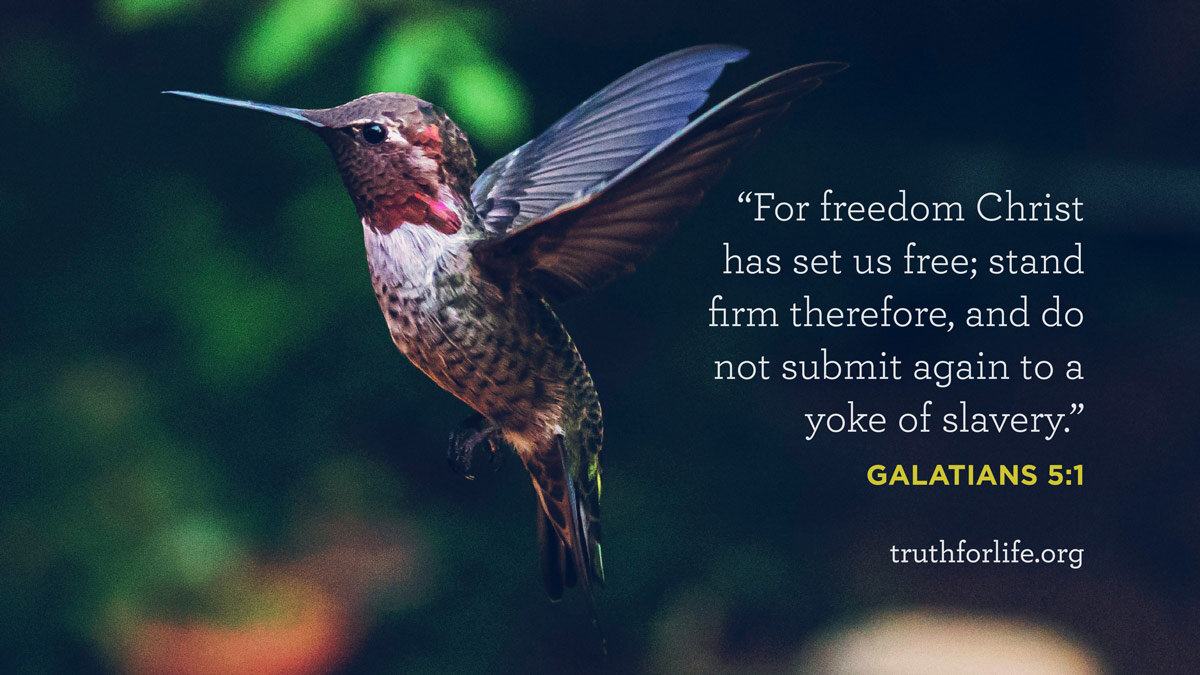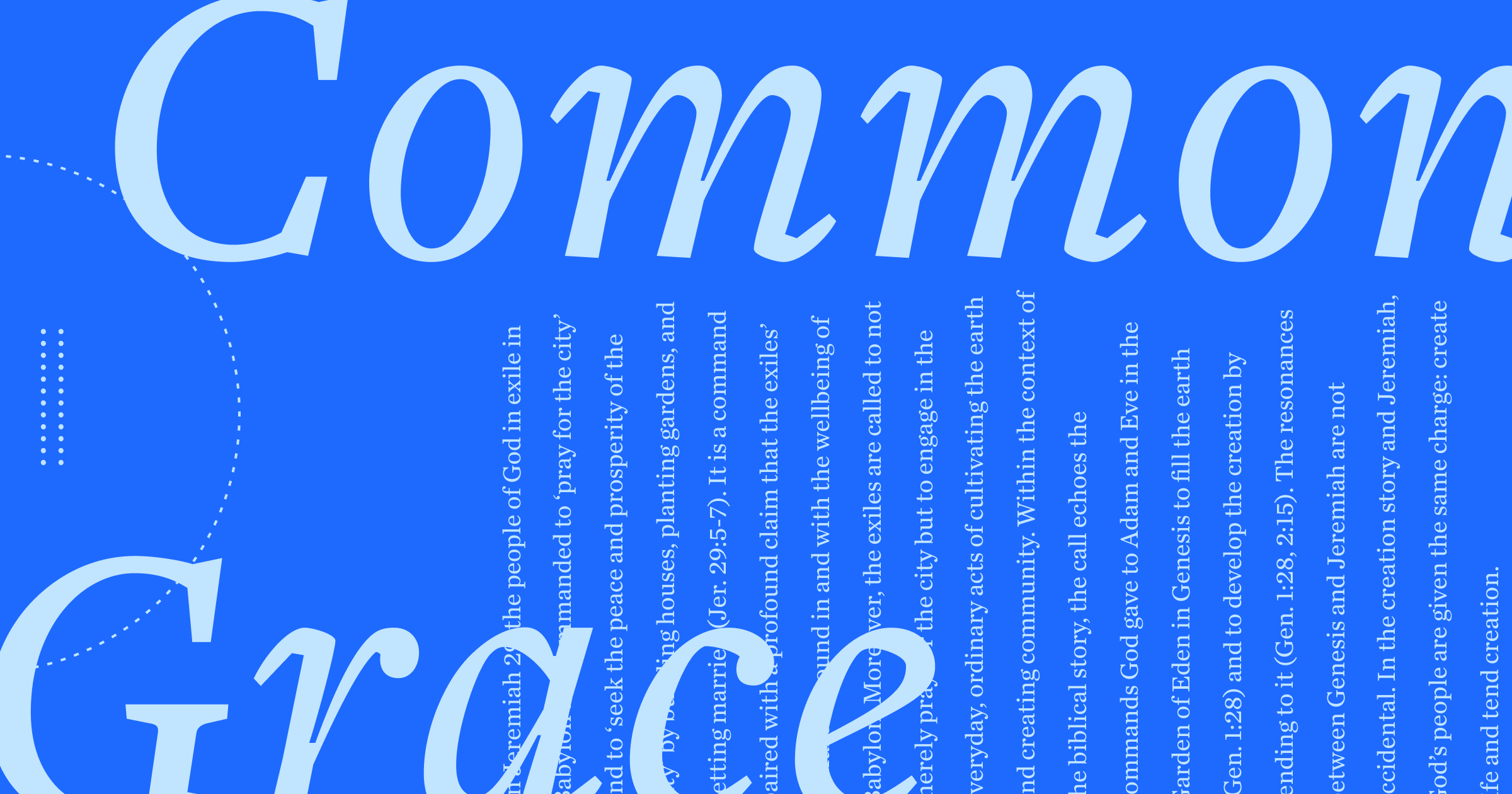The internet has questions about the creation mandate.
I have answers.
And when I don’t, I’ll tell you straightforwardly.
What is the creation mandate?
The creation mandate is God’s original marching orders to mankind. But it is also the original divine blessing that has brought us all of the amazing progress and beauty humans have produced through time. It is both a command and a gift.
Where is the creation mandate found in the Bible?
Look for both elements—command and gift—in the statement of the mandate in Scripture, which appears pretty much on page 1:
Then God said, “Let us make man in our image, after our likeness. And let them have dominion over the fish of the sea and over the birds of the heavens and over the livestock and over all the earth and over every creeping thing that creeps on the earth.”
So God created man in his own image,
in the image of God he created him;
male and female he created them.
And God blessed them. And God said to them, “Be fruitful and multiply and fill the earth and subdue it, and have dominion over the fish of the sea and over the birds of the heavens and over every living thing that moves on the earth.” (Gen 1:26–28 ESV)
The creation mandate proper is in the final paragraph above, which is verse 28. And in that all-important, foundational statement can be seen both the mandate and the blessing that makes it happen, both the command and the grace that gives what God commands.
It is important that the text says, “God blessed them, and God said to them …” The mandate is a blessing. As Derek Kidner points out in his beautiful Genesis commentary in the Tyndale series, “to bless is to bestow not only a gift but a function.” And Kidner shows this to be true within the context. He points to Genesis 1:22 and 2:3, both of which give a blessing to objects that can’t obey—or, rather, can’t disobey—a mandate.
And God blessed them [the fish and the birds], saying, “Be fruitful and multiply and fill the waters in the seas, and let birds multiply on the earth.”
…
So God blessed the seventh day and made it holy, because on it God rested from all his work that he had done in creation. (Gen 1:22; 2:3 ESV)
The point here is that fish and birds are going to be fruitful, multiply, and fill the waters and air, whether they choose to do so out of obedience to their Creator or not. The seventh day is going to be holy, whether upstart nineteenth-century Frenchmen declare a ten-day week or not.
And humans are going to be fruitful, multiply, fill the earth, subdue it, and have dominion over it, whether we do so out of love for our Creator and acknowledgment of his authority or not. The difference between us and the birds and fishes is that we are permitted to disobey—during this age, at least. We can live against the grain of the mandate. We’ll discuss some ways in which we are doing just that later in the article.
It’s when people choose to live in opposition to God’s blessing that its character as a mandate is displayed. When people refuse to be fruitful, multiply, fill the earth, subdue it, and have dominion over it, they start to bend and finally to break creation, something they must not do—for God has given a command.
How does the creation mandate differ from the dominion mandate?
Modern Westerners are immediately concerned, upon reading the 3,500-year old text of Genesis 1, about that word “dominion.” Dominion is generally considered a bad word. The Dominion was the shadowy, evil enemy in Star Trek: Deep Space 9. Few people call Virginia “The Old Dominion” anymore. I gather that Britons are somewhat embarrassed that they once had “dominions.” To have dominion is, in the Western mind, equivalent with domination, violation, and abuse. We are uncomfortable with the idea that anybody get permanent or absolute authority over anything.
This discomfort arises in part because of our addiction to expressive individualism. As a modern Westerner in my hearing recently said, “What’s wrong with an employee using crude language at work? He’s just expressing himself.” But our discomfort with “have dominion” also arises from the universal experience of witnessing fallen leadership, abused authority, and sinful uses of power.
But the creation mandate is nonetheless rightly called the dominion mandate, at times—and the cultural mandate, as we’ll see. It could just as easily be called the “multiply mandate” or the “subduing mandate.” And, quite clearly, none of these blessings/mandates of God are inherently sinful. God issues the dominion mandate before the fall of man into sin. And the somewhat curious and apparently random comments about Jabal, Jubal, and Tubal-Cain in Genesis 4 are not the ancient Jewish version of the Just So Stories:
Adah bore Jabal; he was the father of those who dwell in tents and have livestock. His brother’s name was Jubal; he was the father of all those who play the lyre and pipe. Zillah also bore Tubal-cain; he was the forger of all instruments of bronze and iron.
No, these comments indicate that, despite the fall the dominion mandate still applies—and is indeed “exten[ded] … from animal husbandry (Gen. 4:20) to the arts (4:21) and sciences (4:22).” Dominion—authority, power, subduing—is fundamentally a good thing, and its fundamental goodness is not lost in the fall.
Good stewardship actually requires dominion, and good dominion is stewardship.
And we know this. Great good has been done in the world precisely through our subduing its elements and having dominion over them. When we take our God-given authority over creation and use it to glorify God and love our neighbor, we end up with all kinds of useful discoveries for how creation can be made an even more fit place for human fruitfulness and filling.
One of the greatest modern exponents of a wholesome view of the creation/dominion/cultural mandate, Al Wolters, has written, “Creation is not something that, once made, remains a static quantity. There is, as it were, a growing up (though not in a biological sense), an unfolding of creation.”
Another writer in the line of Wolters is the insightful Andy Crouch—whose excellent book, Culture Making, is something of an exposition of the creation mandate—has an equally excellent sequel, Playing God, in which he says,
Thousands of years after Genesis was written, we can see in a way its first readers could never have imagined just how much capacity these human image bearers had to fill the earth—just how much power was ultimately available to them, coiled in the physical elements’ chemical and nuclear bonds, and emerging from the incredible complexity of the human mind and the fecundity of human culture.
Dominion can indeed be bad, abusive, destructive. “The rulers of the Gentiles,” Jesus said, like to “lord it over” other people (Matt 20:25). But good stewardship actually requires dominion, and good dominion is stewardship.

Use Logos’s AI-powered Smart Search to quickly find reliable answers to your Bible study questions.
How can Christians balance the dominion mandate with humility and service?
So there is no balance needed if dominion is understood properly. How does God dominate? With absolute power that—in a flagrant violation of Lord Acton’s famous dictum—most certainly does not corrupt absolutely. Quite the opposite: God’s power doesn’t corrupt God at all.
Combine power and love, and you have what makes the world go ’round. Dads who use their power to lift heavy objects use that power to provide for their families. Moms who use their power to turn plant leaves and seeds and livestock into tasty meals use that power to feed their families. All good teachers and construction workers and pharmacists and insurance agents (you can list here any legitimate vocation) are using their God-given power of dominion to make this world a better place for their neighbors.
I love the work of legal theorist Steven D. Smith, and he makes a simple point in his Fiction, Lies, and the Authority of Law that has really stuck with me as a Christian and as a father. If having and wielding authority is necessarily corrupting, necessarily the opposite of humility and service, then how do we account for the authority we all assume as parents? No one has more authority over a baby than its mother. She can—and I hate even to write these words—hurt and abuse the child, withholding from it the nourishment and nurture it absolutely must get from her. But does she? Only rarely.
No one performs more humble services for anyone else than do parents, who buy and change diapers, pick up after a child (never-endingly), and love the child even when it throws the most irrational and inconvenient fits for the umpteen-hundredth time (ask me how I know). Parenting is nothing if not humble service.
Love turns power into dominion rather than domination.
But it’s also the exertion of power for the good of another: power over screen time and bed time, power over how many snacks one may have in an afternoon, power over the very words a child is permitted to say. Love turns power into dominion rather than domination.
How does the creation mandate connect to the image of God?
And we all possess love, even the worst of us. We all love someone or something. We do so because we’re made in the image of a God, who is love (1 John 4:16).
Some interpreters of Genesis wish to argue that the creation mandate is sourced in the imagery that Moses uses (under divine inspiration). We are “images” of God in the same way that “images” of ancient rulers such as Caesar or Ozymandias acted like signs and even garrisons of their authority far from their physical locations. This view tends to make the creation mandate a natural outflow of God’s authority: It makes us not only images who are representing his authority, but vice-regents who are actually exercising that authority—obviously in a derivative and secondary way.
That interpretation of the image and its relation to the mandate is possible. And I’m still comfortable calling people vice-regents of God even if this guess about the meaning of “image” is inaccurate. And I have to say that I feel that it is. I’d need more contextual clues that this is what God had in mind.
Some interpreters see all of humanity as collectively imaging God. One important theologian who has made much of the creation mandate, Herman Bavinck, wrote that the image of God
can only be somewhat unfolded in its depth and riches in a humanity counting billions of members. Just as the traces of God (vestigia Dei) are spread over many, many works, in both space and time, so also the image of God can only be displayed in all its dimensions and characteristic features in a humanity whose members exist both successively one after the other and contemporaneously side by side.
If this is true, then the creation mandate blesses and spurs mankind to discover more and more—though still a tiny portion—of the truths God knows, the goodness God is, and the beauty God displays.
But the fact is that the precise nature of the image of God is an enduring mystery—and challenge. Its relationship to the creation mandate is therefore not clear.
What role does the creation mandate play across Scripture?
The Bible never abrogates or undercuts the creation mandate. It mostly assumes it and only occasionally—arguably—references it.
I see the mandate in two major places in Scripture, one at the beginning and one at the end. I also see it in certain themes that connect the whole Bible.
1. The Tower of Babel
Babel, perhaps, makes the clearest reference to the creation mandate. It does so by breaking it.
Then they said, “Come, let us build ourselves a city and a tower with its top in the heavens, and let us make a name for ourselves, lest we be dispersed over the face of the whole earth.” (Gen 11:4 ESV)
So when man decides not to “fill the earth,” God forces him to do so (Gen 11:8–9). This happens in Genesis 11, at the beginning of the reboot of the narrative of human population, after the flood.
2. The New Jerusalem
One of the other testimonies to the importance of the creation mandate lies at the end of this narrative, in Revelation, when the story of the Bible finds its denouement. When God restores his complete rule over the world, thereby restoring our world to the way it was created to be, we don’t see a garden. The trajectory of Scripture does not run from garden to garden—but from garden to city (Rev 21–22).
To be sure, this city is not a city of man but the very city of God, the New Jerusalem that “com[es] down out of heaven from God, prepared as a bride adorned for her husband” (Rev 21:2). So the eternal state is not an accomplishment of man but a gift of God. Nonetheless, the New Jerusalem represents the trajectory that the earth is supposed to be one, and it collects into it “the glory and honor of the nations” (Rev 21:26).
Incisive and wise writer Andy Crouch joins many other interpreters in seeing this glory and honor as including cultural goods.
What cultural goods represent the “glory and honor” of the many cultural traditions we know? … My own personal list of “the glory and honor of the nations” would surely include Bach’s B Minor Mass, Miles Davis’s Kind of Blue and Arvo Pärt’s Spiegel im Spiegel; green-tea crème brûlée, fish tacos and bulgogi; Moby-Dick and the Odyssey; the iPod and the Mini Cooper. Of course I don’t expect any of them to appear without being suitably purified and redeemed, any more than I expect my own resurrected body to be just another unimproved version of my present one. But I will be very surprised if they are not carried in by one or another of the representatives of human culture, for they are part of the glorious best that human beings have made.
3. The kingdom
And perhaps this is a stretch, but I have always seen the kingdom of God itself as related to the “dominion” mandate.
Man was created to be God’s vice-regent in God’s kingdom. Adam, our representative, rebelled, so a Second Adam had to take up the dominion Adam failed to fulfill (Rom 5:12–21; 1 Cor 15:21–22, 45–49). “Your kingdom come” is, in part, a prayer that God’s rule would be restored—and humanity’s place in it (Matt 6:10).
4. The covenants
Many therefore see the creation mandate continuing into the biblical covenants. For instance, what was a command to Adam and Eve (something they were to fulfill) becomes a promise to Abram in Genesis 12. Some of the same language and themes—like “blessing” and multiplication—appear in the Abrahamic Covenant.
Arguably, connections back to the mandate continue into the subsequent covenants as Israel is made into a nation, subdues a “New Eden,” is given a line of Davidic kings who mediate God’s rule over them (a sort of microcosm of the imaging/mandate function; see Exod 19:5–6). The story climaxes in Christ as the type, the proto-kingdom, gives way to the antitype, the kingdom of Christ.
This perspective on the story of Scripture, of course, roots the covenantal program further back then Genesis 12, into creation itself. Therefore covenantalists, in contrast to dispensationalists, often argue for something of a creation covenant. It also situates God’s program for Israel within these creation-wide concerns from the start, against those who make a sharper divide between God’s program for Israel and the nations (the church).
How does the creation mandate relate to the Great Commission?
Which brings us to the Great Commission (Matt 28:18–20). I follow other thinkers in the Dutch Reformed tradition in believing that, as one of that tradition’s modern exponents has said, “the great commission is the means by which the narrow image of God is restored to humanity, as sinners receive renewed knowledge, righteousness, and holiness.”
Some thinkers have gone so far as to say that the Great Commission is a “republication” of the creation mandate. I can’t go that far, because I don’t see Jesus or my New Testament explicitly reaffirming the mandate but rather assuming it.
When people are brought into God’s kingdom in this time before the time, they can start living out kingdom values—including, foundationally, being fruitful and multiplying and filling the earth and subduing it. But the whole earth will not be filled with the glory of the Lord unless humans repent and believe the gospel. So the Great Commission paves the way for self-consciously God-glorifying efforts to fulfill the creation mandate.
Also, salvation comes by union with Christ, the ultimate image of God, the Second Adam. And Paul speaks regularly about believers as a new man (or new humanity) that is being increasingly conformed into the “image” of Christ. These themes come up in Romans 6 and 8, Colossians 3, and Ephesians 2 and 4.
These passages, then, all connect salvation to God restoring humanity, and (implicitly) our pursuit of the creation mandate. We might say, then, that the renewal of creation simply has to include the renewal of this mandate.
What does the creation mandate mean for Christians today?
And that perspective on the Great Commission, in turn, leads us to Christians’ responsibility today with the creation mandate.
The creation/dominion/cultural mandate explains and justifies how most Christians spend most of their time. If this world doesn’t matter at all, if only the next matters, then our priorities are completely off. We should do whatever we can to evangelize as much as possible and to get money only to provide for the bare necessities. And, of course, I will not say it is wrong for some Christians to do this; and I will say that it’s wrong for Christians to aim at gaining wealth and yet never find time to give the gospel to anyone.
But the Protestant Reformation helped recover, in part through the creation mandate, a doctrine of “vocation.” Craig Bartholomew quotes Abraham Kuyper’s famous Lectures on Calvinism (which were not lectures on the five points but on Calvinism as a worldview, a life system):
The cultural mandate of Genesis 1 was rediscovered and with it a doctrine of vocation so that God is to be served in all areas of life. “To praise God in the church and serve him in the world became the inspiring impulse, and, in the church, strength was to be gathered by which to resist temptation and sin in the world.” It remained the distinctive characteristic of Calvinism that it positioned the believer coram deo, and not only in church but also in one’s personal, family, work, social, and political life.
The creation mandate is why it’s okay, and indeed right, for many readers of this article to be moms, pilots, physical therapists, real estate agents, data analysts, graphic designers, chemists, chefs, hairdressers, historians, lawyers, etc.
But I’d be remiss at this point if I failed to point out that the creation mandate doesn’t merely justify the patterns of life we naturally adopt: It corrects and challenges us.
The creation mandate doesn’t merely justify the patterns of life we naturally adopt: It corrects and challenges us.
There is one major way in which modern Westerners, including many Christians, are living against the grain of the blessing inherent in the creation mandate. It’s in our birthrate. Without saying to any individual married couple, “You ought to have more children,” which is something I can’t know, I can say to the whole developed world, “You ought to have more children.” The Population Bomb that Paul Ehrlich warned of in 1968 never exploded; the advent of the birth control pill and other cultural factors I won’t pretend to understand have pushed wealthy nations to have fewer children, not more.
The size of my own family—I have three children—was in part an attempt to live out the blessing of Genesis 1:28. We stopped at three for reasons that are private, but I do believe that there are many, many married couples who attend church regularly who need to repent and have kids. They’re refusing God’s first blessing.
How can churches teach about the creation mandate effectively?
Churches need to act as if the creation mandate is still a blessing—and still in force. To do so will rescue many of them from what Francis Schaeffer called “the Two-Story View,” in which churchy and religious things live in their own “upper story” and need not impact what goes on in real life, in the “lower story.”
Sometimes churches build cultures in which “full-time Christian service” is the real and highest calling of everyone, and those pilots, physical therapists, and real estate agents are second-class citizens. A developed understanding of the creation mandate will help the majority of the congregation, those in “secular” or “lower-story” jobs, to see that they, too, are called to full-time Christian service. It is honorable and right to use the skills God gives and the natural resources he provides to serve one’s neighbor in a legitimate vocation.
What are some resources that can be used to further study the creation mandate?
Some of the books that have helped me understand and apply the creation mandate to my life and Bible teaching—including one I wrote (along with a team of colleagues)—are listed here:

 3 weeks ago
16
3 weeks ago
16












 English (US) ·
English (US) ·